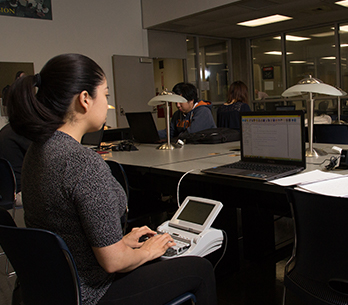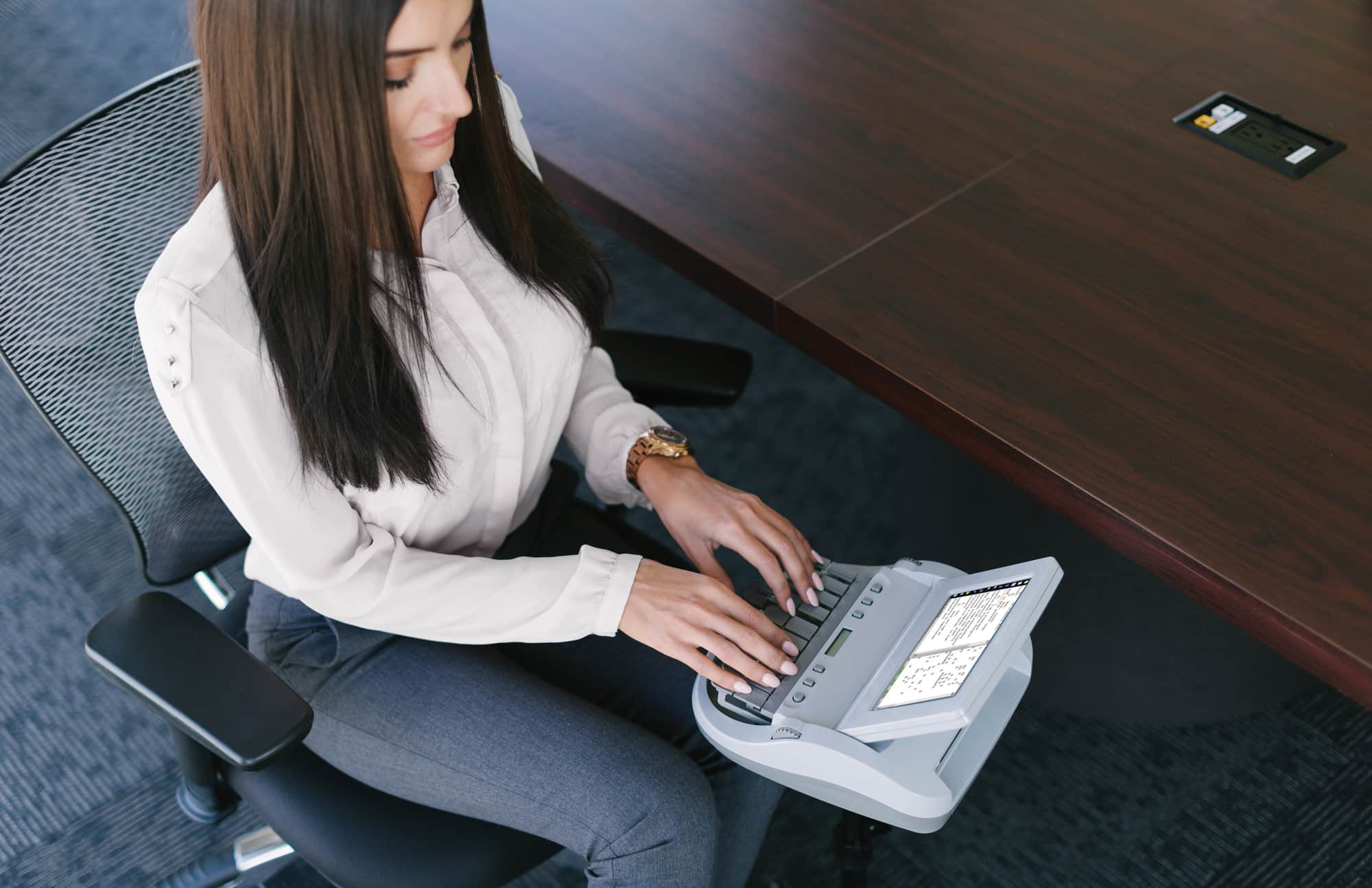Court reporting: How Modern Tools Like Digital Recording Enhance Accuracy
Court reporting: How Modern Tools Like Digital Recording Enhance Accuracy
Blog Article
Comprehending the Necessary Function of Court Coverage in Legal Procedures
Court coverage is often forgotten, yet it's necessary in legal process. You could not understand exactly how court reporters ensure every word spoken is taped precisely, influencing decisions made by discretionary. Their abilities and technology play a substantial role in keeping the stability of legal documents. What specifically does the process include, and exactly how has it developed over time? Allow's explore the essential features of court coverage and its significance in the lawful landscape.
The History of Court Reporting
Court reporting has a rich history that dates back to old human beings, where scribes made use of various methods to capture spoken words. By the 16th century, modern shorthand systems began to take form, making it possible for court press reporters to produce exact transcripts effectively.
In the 19th century, the development of the typewriter changed the profession, making it much easier to produce readable documents. The intro of steno makers in the 20th century better progressed court coverage, enabling real-time transcription during trials. Today, stenotype reporter play a considerable function in lawful process, making sure that every word spoken in the courtroom is accurately recorded. Recognizing this background highlights the value of court reporting in keeping a fair lawful system.
The Skills Needed for Court Reporters
As a court press reporter, you need solid typing abilities to stay on par with the busy discussion of lawful procedures. Your ability to pay attention attentively is just as vital, guaranteeing every word is captured properly. Mastering these skills is vital to providing precise and reliable transcripts.
Skillful Typing Capabilities

Strong Listening Abilities
Strong listening abilities are important for court press reporters, as they have to properly catch talked words in actual time. This skill aids you separate between audio speakers, comprehend legal lingo, and comply with complex discussions. Inevitably, solid listening abilities make you an essential asset in lawful process, guaranteeing clearness and precision in the court record.
The Technology Behind Court Reporting
In the domain of legal procedures, technology plays a crucial function in boosting the precision and performance of court coverage. You're most likely acquainted with the conventional stenotype device, but contemporary stenotype reporter currently utilize sophisticated software that integrates with these devices, permitting real-time transcription. This means you can have instant access to the records as the procedures unravel.
Digital audio recording is another technological advancement that's obtaining grip. It catches every talked word, assuring nothing is missed. Some reporters make use of voice acknowledgment software, which can assist improve the transcription process, though it still requires human oversight for precision.
Furthermore, cloud-based storage space enables simple access and sharing of records, enhancing collaboration amongst lawful groups. By leveraging these technologies, court press reporters can give premium, timely records that are crucial for the lawful process. Embracing this tech not only enhances your understanding but also ensures integrity in lawful documents.
The Court Coverage Refine

As lawful procedures unfold, the court reporting procedure ends up being crucial in catching every detail properly. You'll find that a stenotype reporter plays a vital duty by recording spoken words right into written message in real-time. When you enter the court, the press reporter is already prepared, furnished with specialized tools like stenographic makers and audio recording devices.
Throughout the procedures, the press reporter listens diligently, typing out everything stated, from witness testaments to attorneys' debates. You might observe them pausing periodically to guarantee clearness or to ask for weblink a repeat if something wasn't clear. After the session, the press reporter reviews the transcript, making essential edits for readability.
This entire procedure not only ensures a complete document however additionally prepares you for future reference during charms or instance reviews. In the hectic atmosphere of a courtroom, the court reporting process is essential for preserving a precise account of occasions.
The Value of Accuracy in Records
While a stenotype reporter's main duty is to transcribe spoken words, the precision of these records is critical for the stability of lawful proceedings. When you're involved in a situation, you rely upon precise paperwork to comprehend the events and debates offered. Any kind of mistakes in transcription can lead to misunderstandings, misconceptions, and even wrongful judgments.
Exact records assure that every information is caught, providing a reliable document for judges, attorneys, and courts. This level of detail is vital during charms or when referencing past statements. If a records consists of mistakes, it can weaken the entire legal procedure, possibly impacting outcomes.
Furthermore, accurate records maintain the legal rights of all visit here celebrations involved, advertising justness and transparency. Whether you're a legal representative preparing for trial or a witness reflecting on your testament, you can trust that the court reporter's ability in accuracy plays a significant duty in your case's success.
The Duty of Court Reporters in Various Lawful Setups
Stenotype reporter play a crucial duty in different legal setups, from trials to depositions and legal hearings. You'll discover that their job assurances every spoken word is precisely caught, which is essential for the lawful process. Comprehending how their duties vary throughout these environments can highlight their effect on the justice system.
Court Reporters in Trials
In any type of lawful test, you'll locate that court reporters play a necessary role in catching the process with precision and accuracy. Court reporters must preserve focus and rate, often making use of specialized tools to maintain up with busy discussion. Inevitably, court press reporters help maintain the justice system, making certain openness and accountability throughout tests.
Depositions and Legal Hearings
Beyond trials, court press reporters additionally play an important role in you can try here depositions and lawful hearings. Court reporters give real-time transcription solutions, allowing attorneys to follow along and deal with any problems right away. In brief, court press reporters are important in maintaining the integrity and quality of the lawful document in depositions and hearings.
Future Trends in Court Reporting
As modern technology continues to evolve, the future of court reporting guarantees to be shaped by ingenious devices and methods that enhance precision and performance. You'll likely see increased use expert system and real-time transcription services, streamlining the reporting process. These innovations can assist you accessibility records faster, which can be essential for your lawful methods.
Additionally, incorporating video conferencing and remote coverage will certainly become a lot more usual, enabling you to link with court press reporters from anywhere (court reporting). This adaptability can make depositions and hearings a lot more obtainable, conserving both time and resources
You'll likewise discover an emphasis on electronic recordkeeping, which streamlines the storage space and access of records. With cloud-based services, you'll have the ability to share records firmly and collaborate with your lawful team in real-time.
Often Asked Inquiries
What Is the Ordinary Income of a Stenotype Reporter?
The average wage of a court press reporter differs by location and experience, yet you can anticipate it to range from around $50,000 to $80,000 annually. Many variables influence this income, consisting of expertise and need.
Exactly how Do I Become a Certified Stenotype Reporter?
To end up being a qualified court press reporter, you'll need to finish a court reporting program, pass a qualification examination, and gain practical experience. It's critical to remain updated on sector standards and proceeding education and learning demands.
What Sorts of Cases Do Court Reporters Cover?
Court reporters cover numerous cases, consisting of criminal trials, civil lawsuits, depositions, and arbitration hearings. You'll discover them recording whatever, guaranteeing exact records for courts, lawyers, and parties included, recording every word spoken in lawful setups.
Are Court Reporters Required to Have a Degree?
Yes, stenotype reporter normally need a level or certification in court coverage. Several programs provide specialized training, ensuring you acquire the abilities essential for accurate transcription and legal paperwork in numerous settings.
Can Court Reporters Job From Another Location?

Report this page